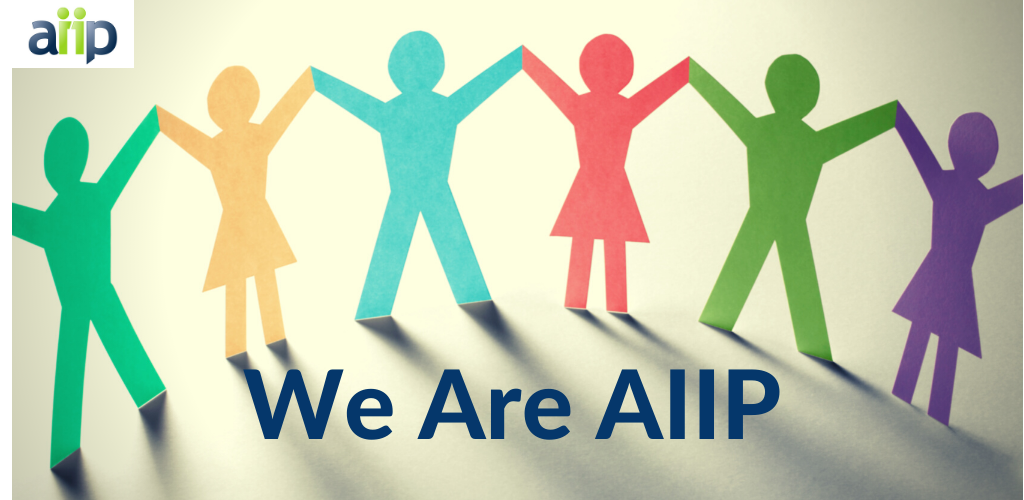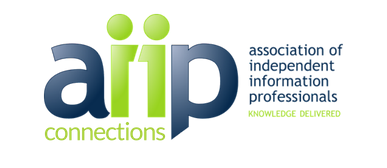We are AIIP Technical Writer and Editor

In your bio, you describe yourself as a Technical Writer and Editor. In two sentences, what is it that technical writers and editors do?
Technical writers and editors, also called technical communicators, translate complex technical concepts by developing materials that are user friendly and apply to a variety of audiences. Materials vary depending on the audience and range from procedures, how-to tips, and instruction manuals to articles, training guides, and white papers.
What are your personal perspectives about how you got into this line of work, what you love about it, and maybe about the types of clients you work with?
I came into technical communication through the back door. In the late 1990s, I worked in management at a hospital that was just beginning to develop its intranet and store business files there. Although we educated the staff on how to access the intranet, I found myself repeatedly explaining the steps for the staff to log in to the intranet and find the information they need. Finally, one day I typed out a simple document and emailed the instructions to my coworkers and asked for their feedback: Could they understand the instructions? Were the steps logical? How could I improve the information shared?
I received enthusiastic responses such as “Sherri, I can follow the steps easily. And, I don’t have to call you each time I need to log in!” The only suggestion was to add some simple graphics, so I did.
Writing the instructions had energized me. I wondered: Are there folks who write instructions for a living? What’s the name of such a profession?
Through some research, I found my answer: Technical Communication! I had found my calling and dove in. I love translating complex technical concepts into user friendly language. I’m attentive to detail and enjoy producing error-free content.
Since my initial work at the hospital, I’ve designed and edited procedures, how-to guides, user manuals, and business articles for other hospitals/health care practices, banks, and solopreneurs.
In what kinds of situations do clients decide they need a technical writer and editor?
As a technical writer and editor, I write, copyedit, and proofread business processes. Scenarios where business decide they might need this type of support are:
- The writing team needs more writers to get materials to their final form by deadline.
- The business needs a technical editor who focuses on accuracy and consistency, and clarity lends credibility to the materials.
- An organization is expanding into new formats, such as an online course or e-book, and needs experienced support.
- A project manager needs an experienced technical writer to take the load off and produce (or revisit outdated) guides and procedures or how-to guides.
- Small businesses or solopreneurs may not have defined procedures that they need for efficient business process and/or regulatory compliance.
What do people need to succeed as a technical writer and editor? And what tools, resources, and professional relationships do you rely on to do your work as an independent technical writer?
The Bureau of Labor Statistics states that a technical writer and editor usually has a bachelor’s degree. “In addition, knowledge of or experience with a technical subject, such as science or engineering, is beneficial.” When working with specific products, technical writers and editors need knowledge of the company products and related information about industry regulations.
Technical editors make sure that content is in a consistent format, using the company style and design. They also educate other writers to incorporate company guidelines in future writing projects.
Skills. To succeed in this field, individuals need to love working with words, enjoy producing error-free documents, and want to create user-friendly content. Technical skills include excellent English, including grammar and spelling rules, excellent writing, style guide expertise, and strong research and interview skills. Typically, technical writers and editors delve into details, have a keen eye for clarity and readability, and collaborate with their teams by providing draft content and feedback.
Developing/enhancing our soft skills adds to our toolbox. As technical editors, we need to remember that we might edit content for experienced writers, and we aren’t better than they are. Our focus is on editing style, and we may need to explain the how and why to these experienced writers.
Style Guides. Style guide expertise plays a significant part in editing. These include company specific guides and published general guides. Depending on the field, technical communicators may use other guides.
As a technical writer/editor, I use the Chicago Manual of Style—and am grateful for the online subscription!
Certifications. Technical writers or editors do not need certification. However, certification is becoming more common. As of 2024, two certification options are: STC (Society for Technical Communication) Certified Professional Technical Communicator (CPTC) and AMWA (American Medical Writers Association) Essential Skills Certificate and Medical Writer Certified (MWC®) credential.
Resources and Professional Relationships. Resources vary depending on the type of technical writing and editing individuals do. I participate in professional associations that relate to my field (like STC) for continuing education. Because I’m a solopreneur, I learn from associations offering guidance on how to conduct the business (such as AIIP). Networking with others helps grow the business and my understanding of the field. But it’s not enough. Over the years, I’ve volunteered on committees and held service positions. These opportunities help me meet other professionals, learn from them, and give back to the organizations.
My network has grown to include professionals in related fields such as copywriters, marketing consultants, coaches, medical personnel, and small business owners or solopreneurs.
Technical writing/editing is a collaborative process. I work with my clients to learn about their goals and who their readers are. Together we review existing procedures and other content, meet with subject matter experts, and make sure the material complies with industry regulations and standards.
Sherri Leah Henkin is a technical writer and editor with more than 20 years of experience consulting with businesses in regulated industries to develop materials that are clear, concise, and compliant. She interviews subject matter experts and performs independent research to design and edit procedures, user guides, training materials, and business articles. Over the past few years, Sherri has participated in a few AIIP project committees. Learn more about Sherri’s technical writing, copyediting, and proofreading services at Contentclarfied.com.





